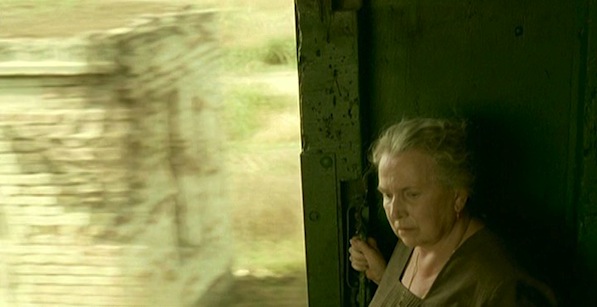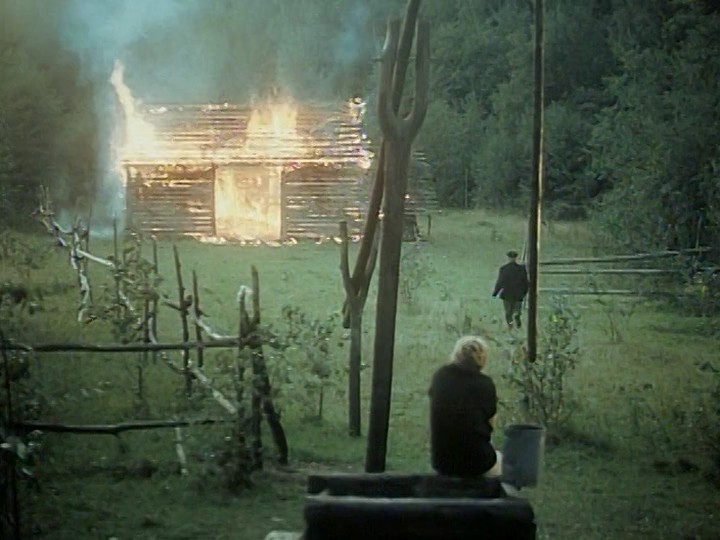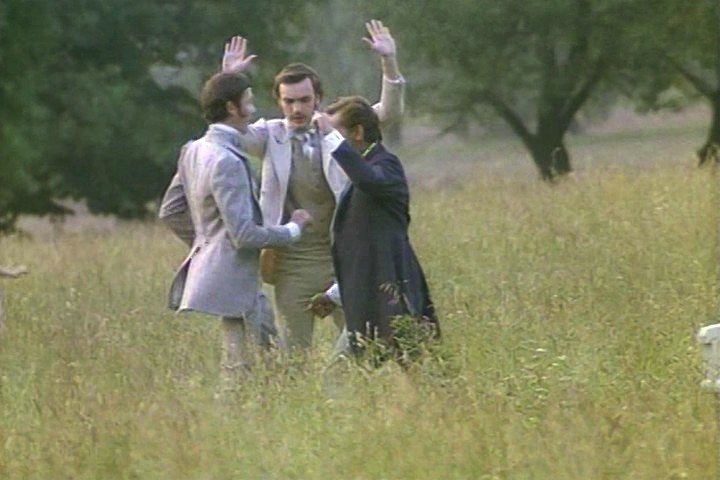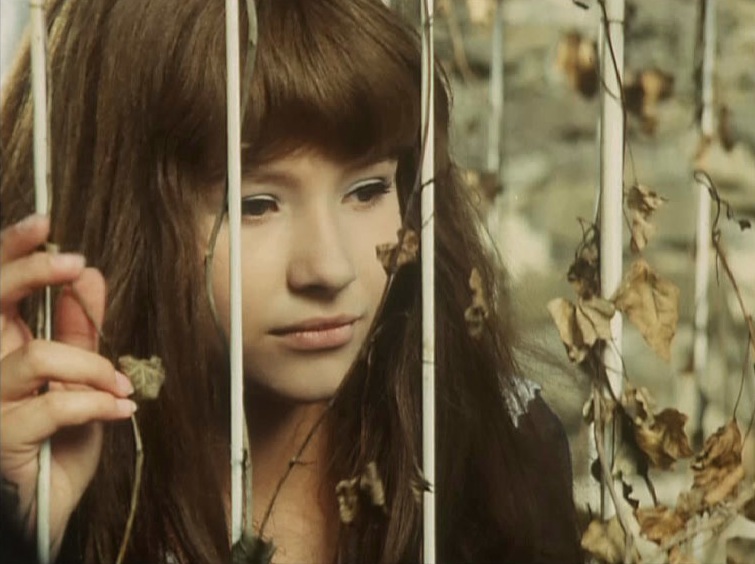When San Francisco Film Society chairman and major champion of U.S. hockey George Gund III succumbed to cancer at age 75 early this year, the world lost much more than a generous long-time socialite arts philanthropist. It also lost one of the few in that league who were deeply passionate and knowledgeable about world cinema.
In particular, Gund was a huge fan of the adventuresome Soviet bloc cinema of the 1960s and ’70s. An inveterate world traveler, he often trekked to remote places behind the Iron Curtain to meet filmmakers he’d discovered at one festival for another. For a time he also imported some of their films for U.S. distribution. Over the years, he also abetted their preservation by donating rare prints to Berkeley’s Pacific Film Archive.
The resulting significant collection is being showcased at the PFA through July 20 via “From the Archive Treasures of Eastern European & Soviet Cinema: A Tribute to George Gund III.” If you don’t live in the vicinity and don’t feel like ponying up for a plane ticket, there are other ways to sample this fascinating chapter in film history—streaming here, for one.
As countries like England with its “Angry Young Man” cycle and France with its Nouvelle Vague began to cast off the shackles of conventional, increasingly ossified commercial cinema in the late 1950s, similar rebellious rumblings were soon heard farther afield. Even behind the Iron Curtain, where the medium had largely stagnated due to Stalinist repression, wartime deprivation and post-war malaise, bracing new talents arose.
This flowering was especially rich in Czechoslovakia, whose artists really pushed the envelope in terms of both aesthetic and political subversion. But it also surfaced in Yugoslavia, Poland, Hungary, U.S.S.R. territories like Georgia and the Ukraine—from all but the most dictatorially backward areas under extended Soviet “protection.”
Unfortunately, all this free expression (not just in film, but myriad other arenas including popular dissent) didn’t sit well with Moscow bureaucrats. The exultant “Prague Spring” of early 1968, when Czech politicians openly defied the Kremlin with a short-lived series of sweeping reforms, was brutally suppressed when Soviet troops invaded to restore “order” that August.
The chilling effect spread quickly through other nations as well. Artists who’d won international acclaim for what was read (often quite rightly) as veiled statements of political rebellion were swiftly called back into line. Some simply fled, like Czech director and future Oscar winner (One Flew Over the Cuckoo’s Nest, Amadeus) Miloš Forman. Others, unwilling or unable to emigrate, suffered variable consequences.
Certain previously approved films were now withdrawn from circulation. Some, green-lit by the previous regime but upon completion no longer acceptable to the new one, went entirely unseen till the Iron Curtain’s fall nearly a quarter-century later opened the censor’s vault.
Certain artists now deemed objectionable were blacklisted from ever making another film. (For most of these countries, under the Communist era there was no “independent” production; everything was state-approved and funded.) Others, like Ukrainian master Sergei Paradjanov (infamously imprisoned for years in labor camps, mostly for the “crime” of homosexuality), survived persecution to flourish again once the political climate warmed. Still more, such as Czechs Jiri Menzel (Closely Watched Trains) and Vera Chytilova (Daisies), or Poland’s Andrzej Wajda, found ways to maintain their careers without compromising their integrity—or displeasing censors—too much.
The PFA series runs a gamut in all respects, geographic, thematic and stylistic. Included are relatively early films by subsequently famed directors Otar Iosseliani of Georgia and Putin pal Nikita Mikhalkov—whose 1980 adaption of Oblomov is a gem of classic literary adaptation.
The old Soviet bloc’s relative openness to women directors (still more impressive than contemporary Hollywood’s) is represented by Hungarian Marta Meszaro‘s 1968 debut feature The Girl, about a orphanage-raised woman’s search for her birth mother. Seven years later she made another powerful drama in Adoption, a variation on the theme of relationships between troubled younger and older women.
After the clampdown on Czechoslovakia’s liberalizing trends, some filmmakers there found safe refuge in seemingly apolitical cinematic fantasy. Stefan Uher’s 1972 The Maple and Juliana turns a medieval Slovak folk tale into Fellow “Czech New Wave” pioneer Jaromil Jires, who’d previously often battled with censors, had an international hit with 1970’s lush, dark coming-of-age fairy tale Valerie and her Week of Wonders. Lesser-remembered is his next year’s PFA series inclusion And Give my Love to the Swallows, which critiques totalitarian cruelty—albeit in a context the Soviet minders could approve, as it portrays a young woman swept up in the local Resistance during WWII occupation. The torments she suffers after Nazi capture have gotten the film aptly compared to various cinematic depictions of Joan of Arc.
Such censorial micro-management encouraged filmmakers to explore metaphor and spirituality—none more famously than Andrei Tarkovsky, whose enigmatic, always aesthetically striking cinema also portrayed WW2-era suffering in 1975’s The Mirror. He in turn provided a mentor and inspiration to Russia’s current leading cinematic mystic. More an avant-gardist than Tarkovsky ever was, Alexander Sokurov (best known in the west for the minor art-house successes Mother and Son and Russian Ark, both extraordinary) channels what he suggests is the ever-receding soul of Mother Russia in semi-abstract narratives that are dreamily troubling and ambivalent.
They present an almost hypnotic abstraction of the individual’s attempted struggle against institutional (or simply fated?) fatalistic chaos. 2007’s Alexandra has a sort of literal “Mother Russia” in the titular figure, an old woman who’s tortuously traveled to Chechyna where her beloved grandson is an army officer fighting the locals—it’s implicit in Sokurov’s that this conflict is needless and pointless. It’s a mournfully tender anti-war film articulated very specifically in a mother’s empathetic terms.








